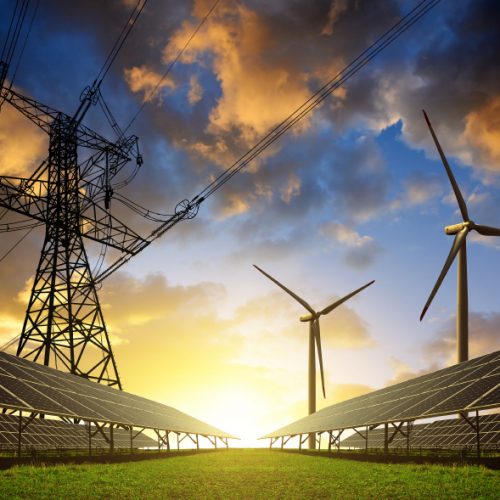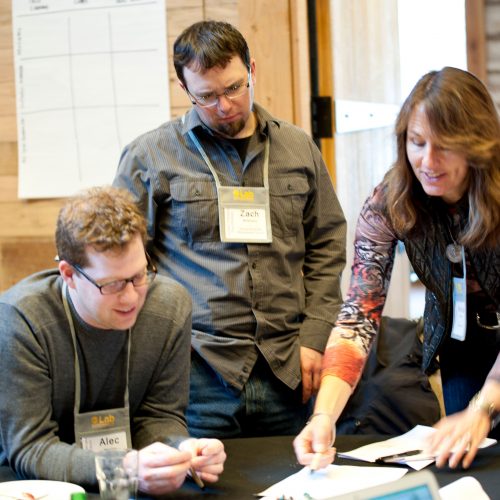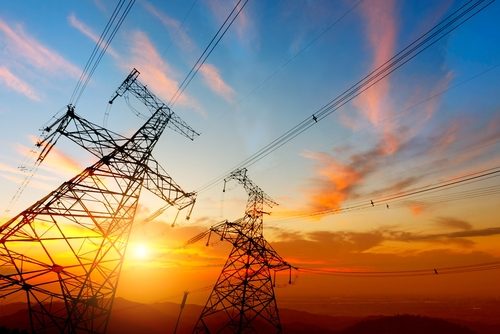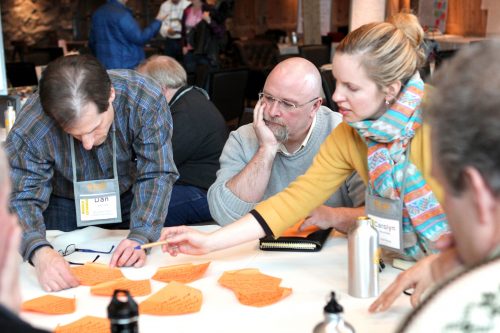
eLab Accelerator 2016
Energy Innovation Asheville

Project Objective
To develop a foundation and framework to meet the region’s growing energy needs through innovative, cost-effective and reliable energy solutions.

Team Members
Cathy Ball, Assistant City Manager, City of Asheville
Ned Doyle, Long-time Community Clean Energy Advocate
Jon Landy, Distributed Energy Resources, Duke Energy
Julie Mayfield, Asheville City Council and Co-Director of Mountain True
Brownie Newman, Buncombe County Commissioner and owner of Headwaters Solar
Robert Sipes, General Manager, Duke Energy – Western Zone
Jason Walls, Local Government and Community Relations Manager - Asheville Area, Duke Energy

Project Description
In the past several decades, customers' peak electricity use in Duke Energy Progress’ Western region, which serves 160,000 customers across nine counties, has more than doubled. Over the next decade, this demand is expected to grow by more than 15 percent. Stakeholders within the Western Carolinas are exploring non-wires alternatives to meet a significant portion of the demand growth, potentially through a combination of demand management (energy efficiency, demand response, etc.) and distributed energy resources (solar, energy storage, etc.). The team brings together Duke Energy, local governments and communities in order to identify and develop innovative solutions for addressing the region’s clean energy goals and growing energy needs while continuing to cost-effectively and reliably serve its customers.

Progress Made to Date (pre-Accelerator)
Asheville-area leaders have adopted strategic plans that integrate economic, social and environmental sustainability to move the region toward a cleaner and smarter energy future. The Asheville region’s electric demand has doubled since 1975. In 2013, Asheville City Council adopted a resolution for a clean energy economy and a partnership with Duke Energy Progress. They followed in 2014, by adopting a framework for a “greener” Asheville. Duke Energy is investing $1.1 billion to retire two existing coal units, build two gas-fired combined cycle units, and upgrading transmission infrastructure. An additional 190 megawatts of natural gas is needed but could be avoided by working collaboratively with the community to offset energy use through energy efficiency, demand-side management, distributed energy resources and innovative technologies. The community has formed a task force to develop long-term plans with the goal to avoid or delay the construction of the contingent unit that’s needed in the 2023 timeframe. The task force will: Inform/educate/engage with customers to use energy efficient behaviors. Provide greater access to and promotion of energy efficiency and demand side programs to drive down our region’s peak energy demand. Make deliberate and purposeful investment in renewable energy and storage.

Project Background Information
WCMP Website: https://www.duke-energy.com/western-carolinas-modernization/#C0R9 Community Clean Energy Policy Framework: http://www.ashevillenc.gov/Portals/0/city-documents/sustainability/sacee/COMMUNITY%20CLEAN%20ENERGY%20POLICY%20FRAMEWORK%20w%20Addendum%20-%202015-07-30.pdf OpEd from Mayor Esther Manheimer - http://www.citizen-times.com/story/opinion/contributors/2015/12/24/guest-columnist-clean-energy-policy-framework-sets-ambitious-goals/77873204/ Guest Column by Duke Energy CEO, Lynn Good - http://www.citizen-times.com/story/opinion/contributors/2016/02/19/guest-columnist-energy-companies-future-working-today/80622900/

Post-Accelerator Outcomes
At Accelerator, the team developed the initial framework and direction for the Energy Innovation Task Force’s (EITF) work. The EITF is made up of community, nonprofit, and business leaders who will develop a two year work plan to increase the penetration rate of energy efficiency and renewable energy as well as inform and engage the public. The framework created at Accelerator will be a direct input to the creation of the work plan. Key tenants of the framework include providing increased promotion to new and existing programs and products, making deliberate investments in renewable energy and distributed energy resources, and helping all players understand their role in achieving the community’s goals. In addition, the team established near term milestone and activities for the upcoming year, including monthly EITF meetings beginning in May 2016, a finalized work plan by December 2016, and target launch dates for several identified energy efficiency and renewable energy programs. The team’s biggest takeaway at Accelerator was an increased awareness of the foundational role the customer and the community play in the success of the initiative.